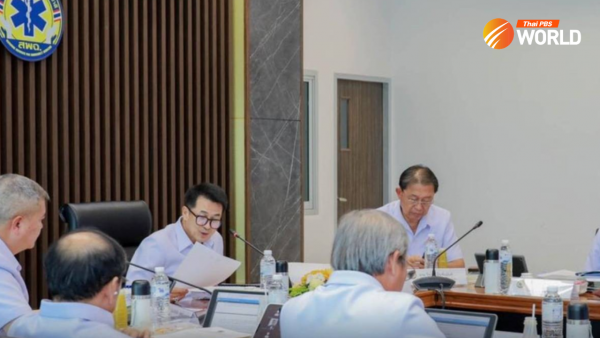TDRI slams junta for helping mobile operators at taxpayers’ expense

Thailand’s highly regarded economic think-tank has voiced its strong disagreement with the National Council for Peace and Order’s executive order extending the payment schedule of concession fees for the country’s three mobile phone operators, claiming the move will benefit the businesses at a cost to the taxpayers of around 24 billion baht.
Mr. Somkiat Tangkitvanich, president of the Thailand Development Research Institute (TDRI), said in a statement issued on Thursday that he estimates that AIS, DTAC and True would each enjoy a windfall benefit from the reprieve of about 8billion baht each, which he described as “miraculous” because, the benefit appears to be equally split between them.
Prime Minister Prayut Chan-o-cha, in his capacity as head of the NCPO, invoked the sweeping powers of Article 44 of the interim Constitution to delay payments by the three mobile operators in the hope that they will then participate in the bidding for the 700MHz and 2600MHz bands to enable roll out of 5G technology in Thailand.
In the statement, Mr. Somkiat pointed out that the share prices of the three telecom companies jumped immediately in response to the NCPO’s order indicating, without any doubt, the shareholders of the three mobile operators had directly benefitted from the junta’s action.
The TDRI president also downplayed the chances that the reprieve will encourage the three mobile operators to participate in the fresh spectrum auctions, noting that 5G technology is not necessary this this year and that Thailand is not yet ready for it.
Above all, he said, not one of the operators has given any undertaking to participate in the fresh bids, only that they would all study the terms of the auction and the starting bid prices first.
“The argument that the debt payment extension means they will participate in the bid for 5G technology does not constitute a barter of a pig for a chicken, but a giveaway of a pig,” said Mr.Somkiat.
He accused the junta and the government of lacking legal and political responsibility for giving away benefits to big businessat the people’s expense, adding the move “lacked legal responsibility because, by invoking Article 44, the government avoids legal accountability and the people cannot subsequently take the case to court,” stressing that the move “lacked political responsibility because this action was taken after the election so that the government would escape criticism from its political rivals for working for big business instead of the electorate.”






